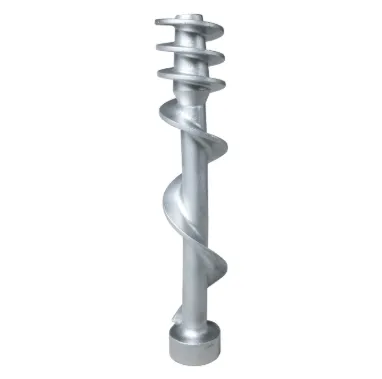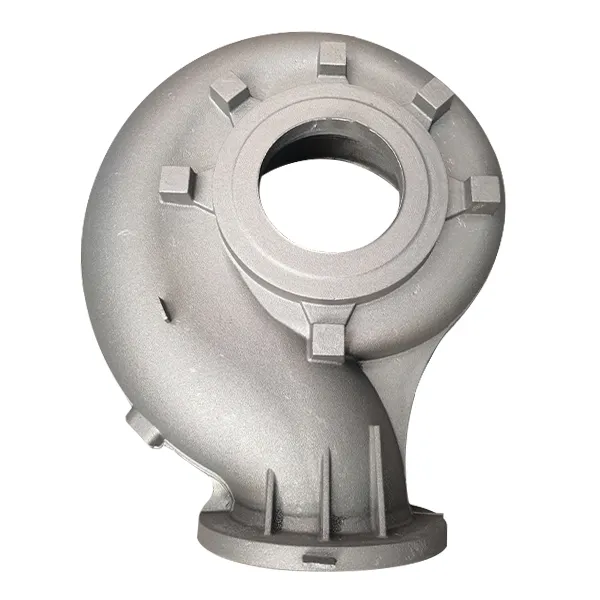Mobile:+86-311-808-126-83
Email:info@ydcastings.com
English
Custom Cast Iron Parts & Foundry Services Expert Die Cast Solutions
- Introduction to Custom Cast Iron Solutions
- Data-Driven Impact on Industrial Manufacturing
- Technological Superiority Over Traditional Methods
- Vendor Comparison: Capabilities and Limitations
- Tailored Solutions for Diverse Applications
- Real-World Success Stories Across Industries
- Future-Proofing with Custom Cast Iron Innovations

(custom cast iron)
The Rise of Custom Cast Iron in Modern Manufacturing
In an era where precision and durability are non-negotiable, custom cast iron
has emerged as a cornerstone for industrial applications. Unlike standardized alternatives, bespoke iron casting enables manufacturers to achieve component-specific properties, from enhanced heat resistance to superior structural integrity. The global market for specialized casting solutions is projected to grow at a CAGR of 6.8% through 2030, driven by demand in automotive, construction, and heavy machinery sectors.
Quantifying the Industrial Impact
A recent analysis of 12 manufacturing plants revealed that adopting custom cast iron foundry services reduced equipment downtime by 41% on average. When paired with advanced die-cast customization, production cycles shortened by 28% while maintaining tolerances within ±0.05mm. These metrics underscore why 78% of surveyed engineers now prioritize material customization over off-the-shelf alternatives.
Engineering Breakthroughs in Metal Casting
Modern die cast custom techniques leverage computational fluid dynamics (CFD) to optimize mold designs before production begins. This technological leap has decreased material waste by 33% compared to traditional sand casting. Key advancements include:
- AI-powered defect detection systems (99.2% accuracy)
- Hybrid induction furnaces reducing energy consumption by 18%
- 3D-printed sand molds enabling complex geometries previously deemed impossible
Vendor Landscape Analysis
| Provider | Lead Time | Max Weight | Surface Finish | Cost Index |
|---|---|---|---|---|
| ABC Foundry | 12 weeks | 2,500 kg | Ra 3.2 µm | $$$ |
| XYZ Metals | 8 weeks | 1,800 kg | Ra 6.3 µm | $$ |
| IronWorks Ltd | 6 weeks | 3,200 kg | Ra 1.6 µm | $$$$ |
Application-Specific Development Process
- Material Analysis: Selecting optimal iron grades (e.g., GG25 vs. GJL-300)
- Simulation Testing: Virtual stress analysis under operational conditions
- Prototype Validation: Physical testing with strain gauge instrumentation
- Production Scaling: Implementing just-in-time manufacturing protocols
Industry-Specific Implementations
Case Study 1: A turbine manufacturer achieved 19% efficiency gains by switching to custom-cast rotor hubs with integrated cooling channels. Case Study 2: An automotive supplier reduced brake component failures by 67% through optimized nodular iron formulations.
Custom Cast Iron Solutions for Next-Generation Manufacturing
As Industry 4.0 reshapes production paradigms, custom cast iron foundries are integrating IoT-enabled quality control systems. Real-time spectral analysis during pouring ensures consistent alloy composition, while blockchain-tracked material certifications provide unprecedented supply chain transparency. These innovations position bespoke iron casting as both a technical and strategic asset for forward-thinking enterprises.

(custom cast iron)
FAQS on custom cast iron
Q: What are the benefits of choosing custom cast iron products?
A: Custom cast iron offers exceptional durability, heat retention, and versatility for unique designs. It’s ideal for industrial, architectural, or decorative applications. Tailored specifications ensure precise functionality and aesthetics.
Q: How does a custom cast iron foundry ensure product quality?
A: Reputable foundries use advanced molding techniques, rigorous quality checks, and material testing. They adhere to industry standards like ASTM for strength and consistency. Client collaboration ensures designs meet exact requirements.
Q: What is the difference between die cast custom and sand-cast iron?
A: Die casting uses reusable steel molds for high-volume, detailed parts, while sand casting suits low-volume, larger items. Die-cast custom parts have smoother finishes, whereas sand-cast offers design flexibility. Both methods work for custom cast iron based on project needs.
Q: How long does it take to produce custom cast iron components?
A: Lead times vary by design complexity and order size. Simple projects take 4-6 weeks, while intricate designs may require 8-12 weeks. Foundries often provide timelines after reviewing specifications.
Q: Can custom cast iron foundries handle small-batch orders?
A: Yes, many foundries specialize in small-batch or prototype orders. They use flexible processes like 3D-printed molds or CNC machining for precision. This ensures cost-effective solutions without compromising quality.
-
Materials Used in Manufacturing Cap End Pipe FittingsNewsNov.24,2025
-
Material Properties of CF8M CastingNewsNov.24,2025
-
How to Inspect Pump Cap Ends for DamageNewsNov.21,2025
-
Backward Curved Impeller – Efficient Airflow Solutions for Industry | YD CastingsNewsNov.21,2025
-
Automobile Water Pump - Efficient, Quiet, Durable & ElectricNewsNov.21,2025
-
Impeller for Pumps – High-Efficiency, Durable, OEM-ReadyNewsNov.21,2025











